This Student Knows What She'll Be Wearing All Semester. Thanks, Twitter.
Be careful what you promise in exchange for some retweets.
University of Alabama student Kelsey Hall posted a photo of herself dressed as a Christmas tree.
Then the 20-year-old vowed to wear it for the rest of the semester in exchange for 1,000 retweets:
1,000 retweets and I’ll wear this to all my classes for the rest of the semester pic.twitter.com/uzIDepK43k
— Kelsey Hall (@kelseyhall1313) December 3, 2017
You know what happened next, but Hall didn’t seem quite ready for it just the same. As the numbers marched toward 1,000, she posted:
Guys I️ really don’t want to do this
— Kelsey Hall (@kelseyhall1313) December 4, 2017
Hall, a chemistry major, told People the costume was a gift from her mother and she thought the pic would be funny... but she didn’t think she’d actually have to wear it for the rest of the semester.
“I definitely did not think I would get 1,000 retweets, I thought it was a very unrealistic number,” she said. “The most retweets I have ever got before was, maybe, five.”
Hall has been as good as her word. She and her friends have been posting images of her on campus in full tree regalia.
Day 2: it’s raining and this costume is about to get all wet and gross 😫 pic.twitter.com/umqaOoPob2
— Kelsey Hall (@kelseyhall1313) December 5, 2017
“It was so bad because it’s still really hot outside, so it was really warm, but also just soaked in water,” she told BuzzFeed.
Love HuffPost? Become a founding member of HuffPost Plus today.
Thank you to everyone who helped my friend reach her goal!! You have no idea how much this means to me!!!!!!!!! (📹: @katbielinski) pic.twitter.com/MObXGeenGA
— Lucy Sweetall (@lucetheguce) December 4, 2017
Dreams really do come true y’all #RollTide pic.twitter.com/BMUdJn8UEl
— Colin (@C_Mil11) December 4, 2017
“I went through with it because I know everyone is going through a tough time with finals coming up,” she told People. “And hopefully, I could bring some Christmas cheer to my classmates.”
Still, she doesn’t seem thrilled about her new life as a tree.
Her current pinned tweet:
“What’s your biggest regret in life?” Me: This https://t.co/qU4O0opsZ6
— Kelsey Hall (@kelseyhall1313) December 4, 2017
On the bright side, at least for Hall, the semester ends next week.
Also on HuffPost
If you choose an artificial tree, you need to use it for a very long time
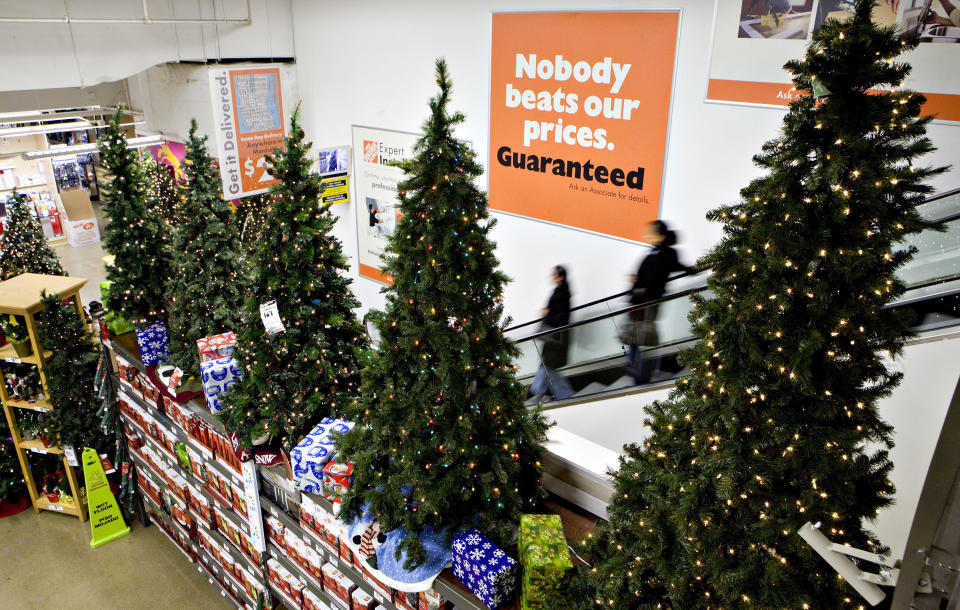
Artificial trees have “three times more impact on climate change and resource depletion than natural trees,” said the study, conducted by the consulting firm Ellipsos.
If you’re going to buy artificial, choose domestic
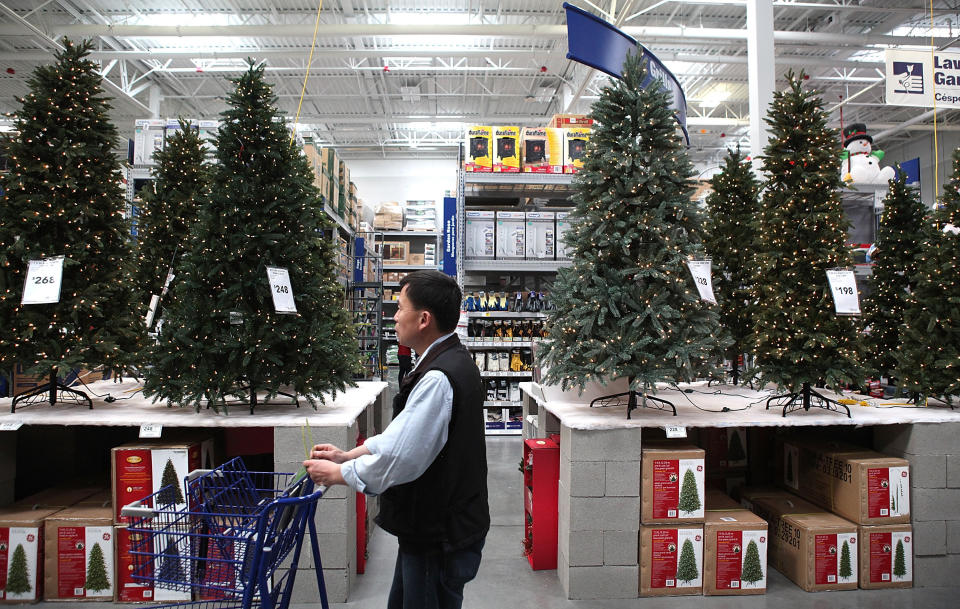
If you're opting for a fake tree, aim to buy one with a "Made In USA" label.
Similarly, if you’re buying a real tree, go local

“If you pick up a real tree close to your home or pick it up on a trip you were going to make anyway, the impact of the real tree is almost nil,” Bert Cregg, a horticulture expert at Michigan State University, told HuffPost.
Buying local also means supporting your community's growers and businesses, as well as preserving local farmland.
The Christmas Tree Farm Network maintains a comprehensive list of farms in the U.S., organized by state.
Real Christmas trees are grown specifically for that purpose
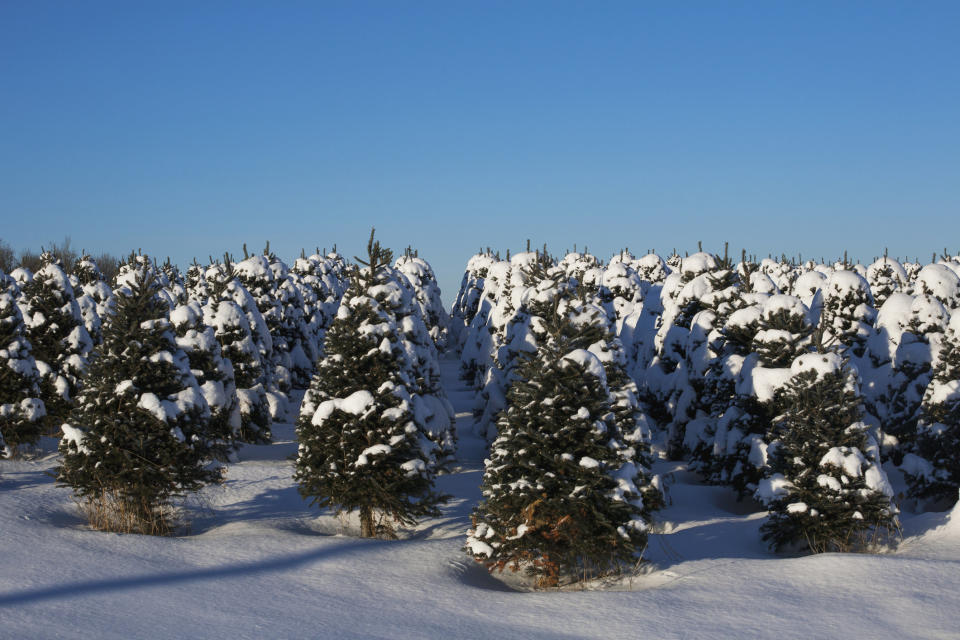
Christmas tree farms can serve as a habitat for local wildlife
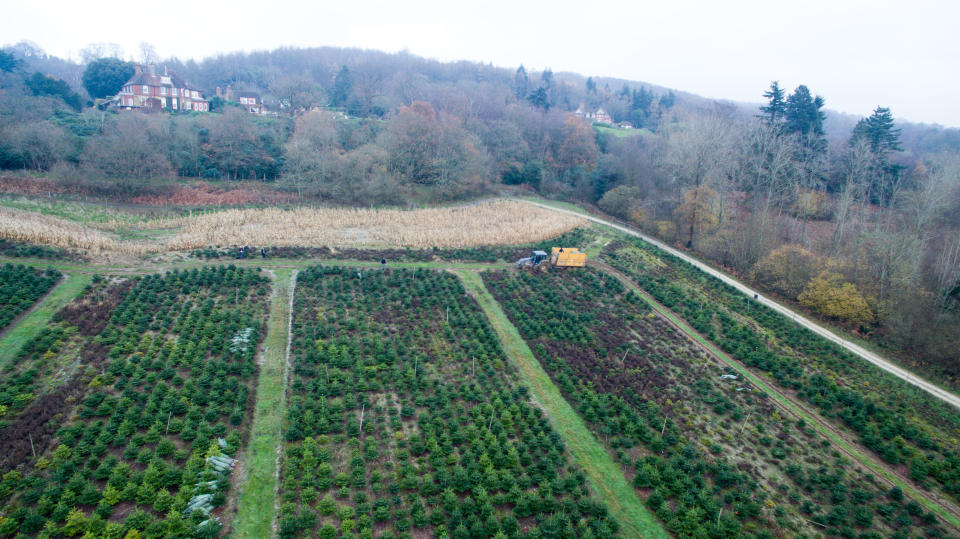
These farms have environmental costs of their own, noted Thomas Harman, who sells artificial Christmas trees. “If you use an artificial tree for 10 years, you need 10 trees, and that is 70 years’ worth of growing trees,” he told Weather.com in 2013. "You have 70 years of water and pesticide consumption."
Researchers say, however, that pesticides aren't actually too much of an issue on Christmas tree farms.
“If you look at the continuum of chemical use in U.S. agriculture, Christmas trees production certainly ranks on the low end,” Cregg told Mother Jones in an earlier interview.
Christmas tree farms can also serve as important habitats for local birds, insects and other wildlife.
Real trees can be composted or recycled
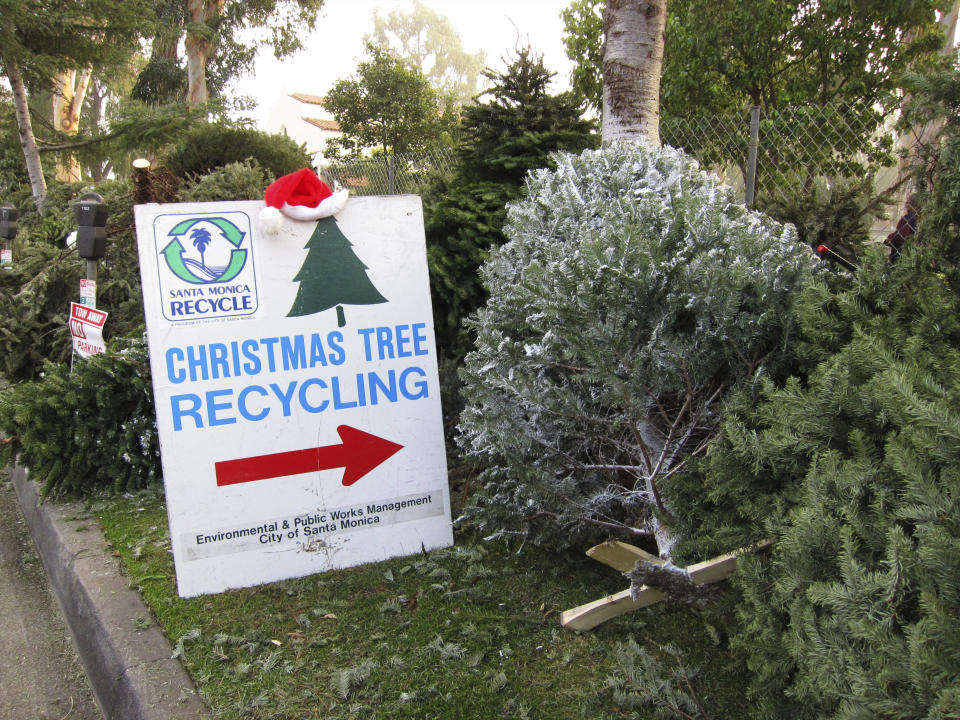
Many towns and cities have curbside pick-up options for recycling Christmas trees, or recycling drop-off centers. Some also offer tree mulching and chipping programs, allowing residents to recycle their trees and take home a free bag of mulch for their garden.
Feeling handy? You can also turn your tree into a DIY project. Create coasters and decorations with the branches and trunk of your tree. Or make some Christmas-scented potpourri.
This article originally appeared on HuffPost.

